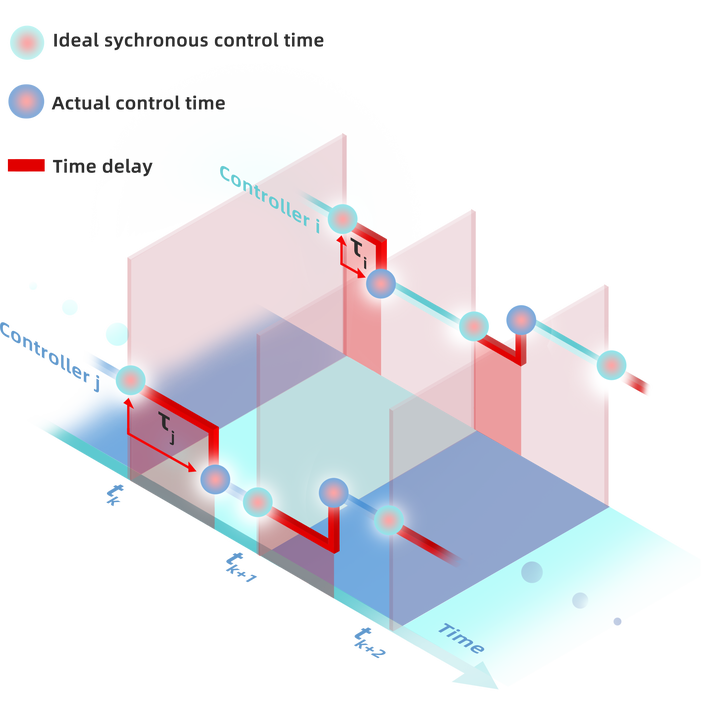The impact of synchronous distributed control period on inverter-based cyber-physical microgrids stability with time delay

Abstract
Inverter-based microgrids under fully synchronous distributed control have broad prospects in multi-agentbased energy systems. Such a system is a typical cyber–physical system. Studying the impact of a synchronous control period on system stability is the pre-requisite for practical deployment of a distributed control architecture with a proper synchronous period. However, simulation-based methods provide little theoretical insight into how synchronous control period influences system stability. Additionally, control-period determination methods based on the convergence analysis of a distributed algorithm cannot sufficiently consider the dynamic characteristic of a physical inverter-based microgrid. In this paper, a synchronized cyber–physical state-transition model of distributed inverter-based microgrids considering multiple time delays from a cyber–physical perspective is proposed. The stability criterion of the system under certain synchronous control periods with multiple time delays is obtained. Furthermore, considering multiple stochastic switching delays with infinite combinations of states, the corresponding stability criterion is also obtained based on switched system theory. The stable interval of the synchronous control period for such cyber–physical power systems can be determined based on the proposed stability criteria and algorithm. A real-world microgrid under fully distributed frequency control is tested and simulated by Simulink simulations to verify the accuracy of the obtained stable synchronous control period.